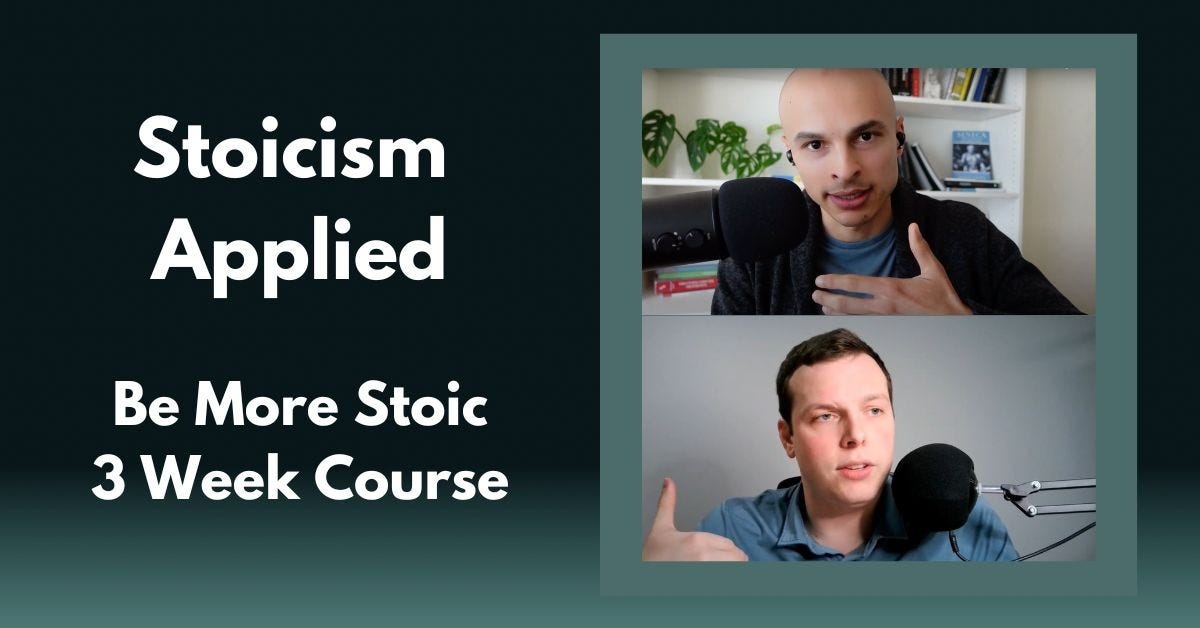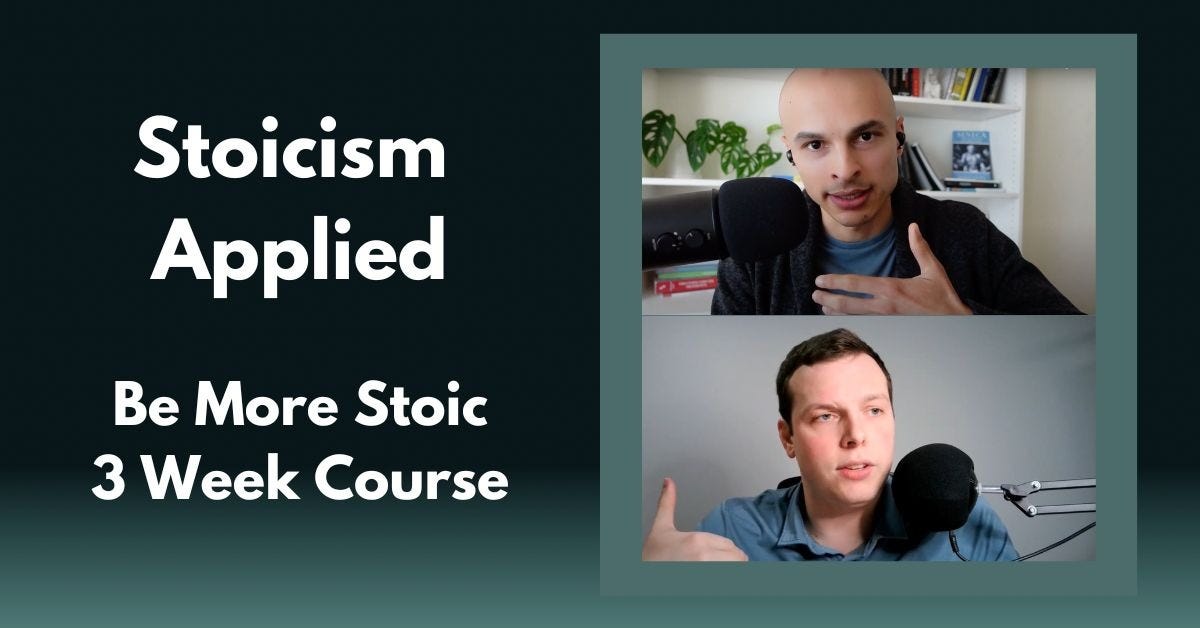Nothing in Excess
μηδεν αγαν
Welcome to The Stoa Letter, the newsletter on Stoic theory and practice.
Every week we share two emails to help you build resilience and virtue with ancient philosophy. Each email includes one meditation on Stoic theory, one action to do in order to become more Stoic, and links to the best resources we’ve found.
🏛️ Theory
Temperance is knowing the right amount of things. Also called moderation or discipline, it is one of the four cardinal virtues.
This virtue opposes the dominant life philosophy of our age: hedonism. Maximizing pleasure.
Hedonism stereotypically involves seeking pleasure in drugs, food, video games, pornography, or TV. For most people, such things serve as innocent pleasures and only occasionally surface as vice. For others, they are truly problematic and damaging.
The hardline response to hedonism bans vicious behaviors outright or moves them into sacred spaces. Sex is reserved for marriage, drug use is relegated to ritual, and recreation occurs in the community, never in private. As religion and traditional modes of living decline the question arises, how should those of us who are drawn to move beyond hedonism realize temperance in our own lives and communities?
Like many traditionalists, the Stoics are not hedonists. There is more to life than pleasure. The eternal quest to feel good and avoid pain is at the root of many evils.
The virtuous take pleasure in the right things, in the right way, at the right times. They do not eliminate it from their life. The right amount is not always zero.
Nonetheless, perhaps, as a culture, we should move closer to the traditional ways. The insight such cultures possess is that “common vices” can serve a larger good when not pursued just for pleasure. Marcus Aurelius allegedly took part in the Eleusinian Mysteries, where sacred drugs would likely have been consumed. The Stoic Cato the Younger organized drinking parties. Netflix can be a matter of education, not just zoning out. The joys of food are best when shared.
What’s key here is that we can use indifferents to improve ourselves and enrich our relationships. Whatever amount allows one to do either is the right amount.
🎯 Action
Identify one way in which you could be more moderate. In what way may you need more or less of something? If you need ideas, you could start with one of the “common vices” – but look elsewhere too. Once you’ve brought one way to mind, take one action and move towards moderation.
🎺 Announcing Stoicism Applied – The Course
Michael Tremblay and I have officially opened enrollment for our live course this Oct-Nov!
Learn more here. Space is limited.

Stoicism Applied by Caleb Ontiveros and Michael Tremblay on Maven
Build resilience and virtue with ancient philosophy.
maven.com/stoa/stoicism-applied

🔗 Resources
🏛️ How does this fit with the three disciplines of Stoicism? The moderate person desires the good (discipline of desire), knows the right amount of things (discipline of judgment), and acts accordingly (discipline of action)
💬 Two essential quotes about moderation:
Would you have a great empire? Rule over yourself.
Publius Syrus, Moral Sayings
Remember that you ought to behave in life as you would at a banquet. As something is being passed around it comes to you; stretch out your hand, take a portion of it politely. It passes on; do not detain it. Or it has not come to you yet; do not project your desire to meet it, but wait until it comes in front of you. So act toward children, so toward a wife, so toward office, so toward wealth.
Epictetus, Handbook 15
🌾 Learn more about Marcus Aurelius and the Eleusinian Mysteries.
What did you think about today's letter?
🏆️ Share The Stoa Letter
If you find what we’re doing useful, please share it. Just have people sign up with your link below.
Share The Stoa Letter
{{rp_personalized_text}}
Or copy and paste this link to others: {{rp_refer_url_no_params}}
Get hundreds of Stoic meditations and lessons with the Stoa app (free download)

